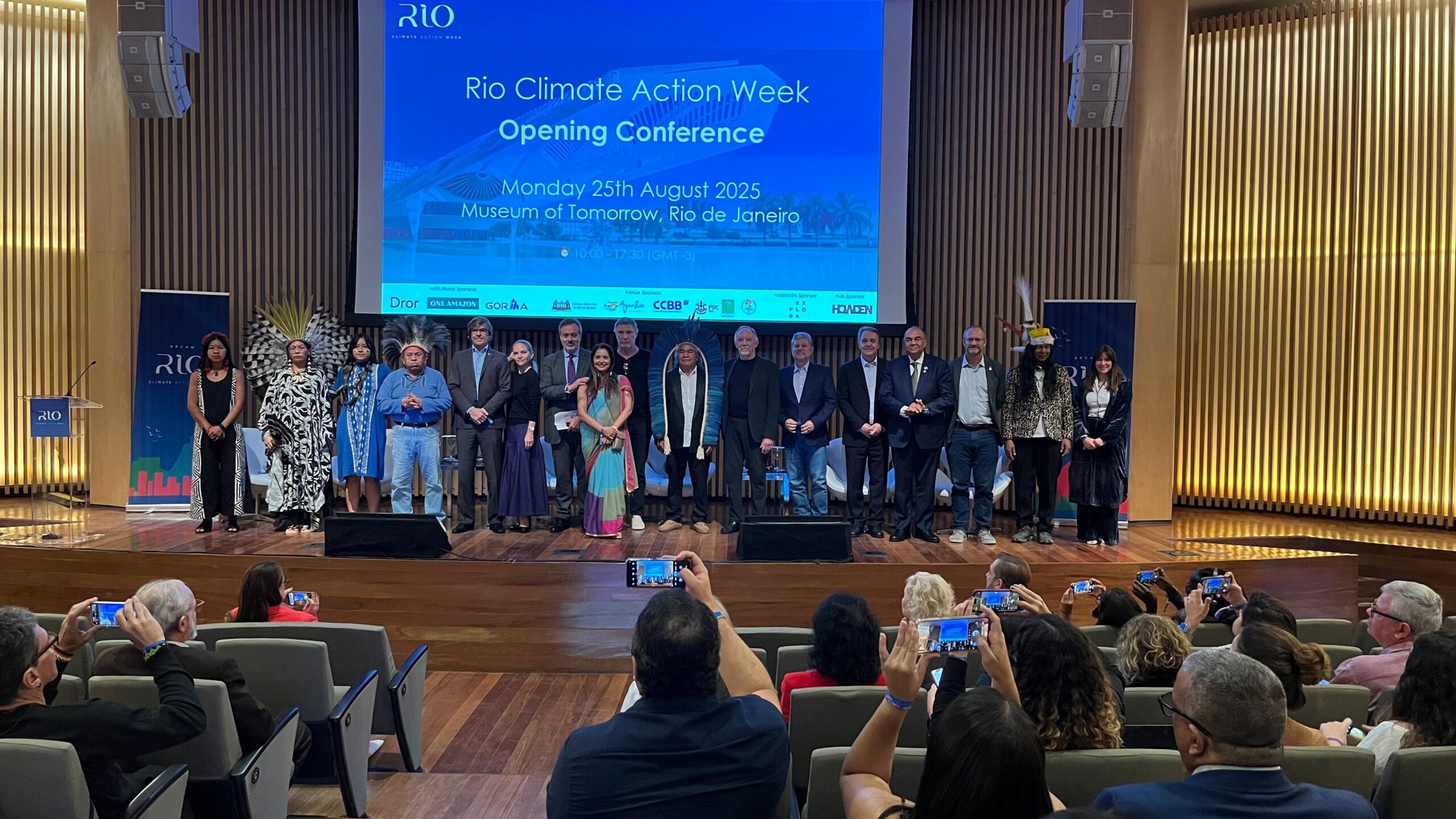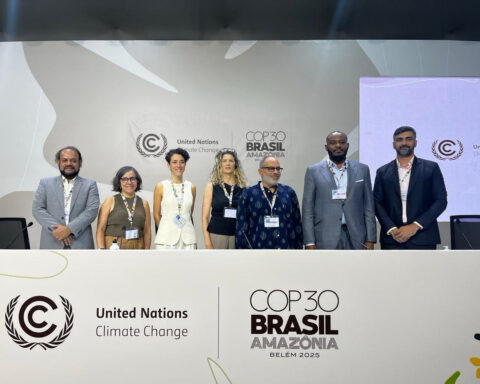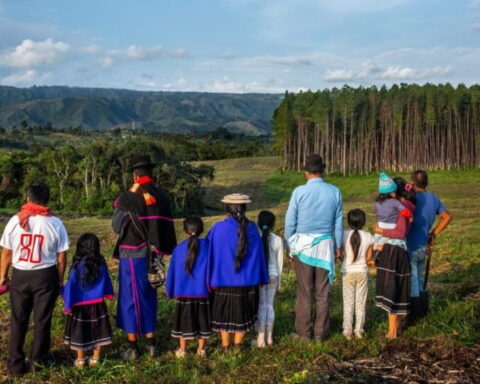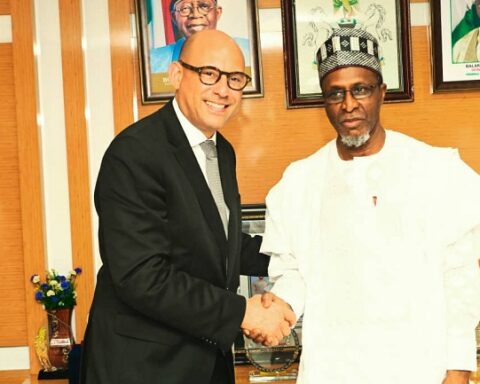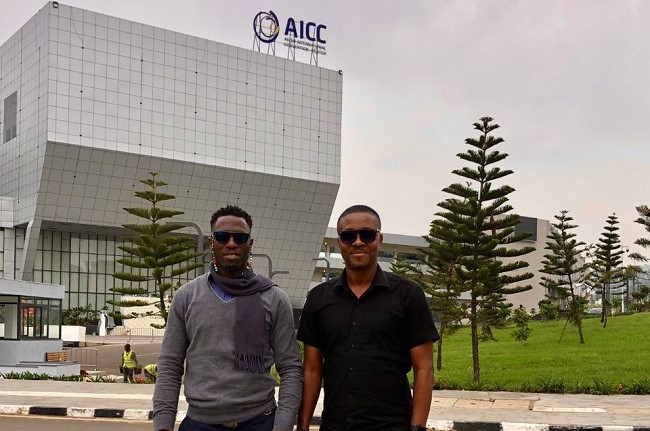The inaugural Rio Climate Action Week (RCAW) has wrapped up with resounding success, reinforcing Rio de Janeiro’s role as a global hub for climate knowledge, activism, and innovation.
The five-day event, which drew more than 20,000 participants and hosted over 240 events, culminated on Friday at the Brazilian Academy of Letters with groundbreaking announcements that stretch far beyond Brazil’s borders.
At the closing ceremony, co-organizers Marcelo de Andrade of Pro Natura International and Malini Mehra, Ambassador of London Climate Action Week, joined Ricardo Piquet, CEO of the Museum of Tomorrow, to unveil initiatives that consolidate RCAW as a long-term platform for climate action through 2030.
Among the highlights was the confirmation that RCAW will return in 2026, co-organized once again by Pro Natura International and London Climate Action Week, in partnership with the Museum of Tomorrow/IDG, Approach Comunicação, and GAEL.
But beyond the symbolism of continuity, what made RCAW stand out was the elevation of grassroots voices, particularly from marginalized communities, who often bear the brunt of climate impacts yet remain excluded from global decision-making tables.
Rio to Pará: A Growing Climate Action Movement
In a major expansion, organizers announced the launch of a regional Climate Action Week in Pará, northern Brazil, in partnership with the local institution Instituto Juruti Sustentável.
This move is timely, as Pará will host COP30 in Belém this year, a gathering that many activists insist must prioritize inclusivity and grassroots perspectives.
The week also witnessed the launch of the Nobel Sustainability World Science Academy at Castelo do Alto, situated in the Tijuca Forest, the world’s largest urban forest. This academy aims to position Rio as a center for sustainability science and innovation, creating new synergies between research and practice.
“We imagined the Week would be big, but nothing close to the success it turned out to be,” said Marcelo de Andrade. “More than 20,000 people mobilized, with 240 events of high quality. This confirmed my thesis that Rio has the vocation to become a protagonist on sustainability after all, it was born here at Rio-92.”
For Nigeria and Africa, this expansion holds lessons. Just as Brazil is linking global platforms with regional action, African countries preparing for COP30 and beyond must invest in connecting grassroots communities with international processes.
Grassroots Day: The Heartbeat of RCAW
If the closing ceremony highlighted institutional ambition, “Grassroots Day” provided the moral compass of the week. Hosted at Ação da Cidadania, a historic anti-hunger organization founded in 1993, the event brought together community leaders, youth, and activists to speak directly about climate justice, food security, and water rights.
Marcele Oliveira, COP30 Youth Climate Champion and member of O Clima é de Mudança, captured the urgency:
“We need COP30, in Belém, to be truly inclusive and about implementation, calling on global youth to take part in what we’re calling a collective effort against climate change.”
From food systems to water security, the panels showcased how local realities intersect with global challenges.
Lilian Rahal, Brazil’s National Secretary for Food and Nutrition Security, unveiled a forthcoming food systems framework for COP30 and presented the Feed the City strategy, mapping food deserts and promoting the right to food in municipalities.
Food engineer Gaio Jorge, co-founder of Coletivo Criação and COP30 delegate, stressed the importance of communication in mobilizing youth:
“The way we communicate shapes the perception of those who listen.”
His Sabores e Saberes de Cria project, blending art and science to fight food insecurity, is already being replicated in other countries, proof that grassroots innovation can scale globally.
Meanwhile, Erley Bispo, founder of Instituto Águas Resilientes, launched the global campaign Water Justice is Climate Justice:
“Two billion people live without safe access to water worldwide, and 35 million of them are in Brazil. We need to treat water as a right, not a commodity.”
This resonates deeply with African contexts where millions still lack access to safe drinking water, highlighting the shared struggles of the Global South.
Speakers repeatedly emphasized the interconnectedness of natural resources. Johari Silva from Ação da Cidadania reminded participants that environmental disasters are the result of absent public policies, not natural inevitabilities. Her #Forests4Food campaign underscored the link:
“Without forests there is no water, without water there is no food, and without food there is no future.”
Similarly, Juliana Coutinho emphasized that local communities are the true guardians of ecosystems, maintaining biomes through traditional practices. Her statement carries weight for African rural communities where local stewardship remains crucial to preserving fragile ecosystems.
Lessons for Africa and the Global South
For Nigerian and African audiences, the messages from RCAW are both sobering and inspiring. The platform demonstrated that climate justice is inseparable from social justice: without ensuring rights, inclusivity, and equity, no sustainable climate action is possible.
The creation of partnerships linking Rio’s favelas to Nairobi’s Kibera informal settlements illustrates a powerful model for South-South solidarity. With a focus on water, food security, youth, and entrepreneurship, this cooperation shows that communities facing similar challenges can share strategies and amplify each other’s voices globally.
For Africa, preparing for COP30 in Belém presents an opportunity to learn from Brazil’s example. Grassroots and youth voices must not only be invited but also placed at the center of decision-making. Civil society in Nigeria and across the continent must demand frameworks that address the intersection of governance, rights, and climate, the very nexus that determines whether communities thrive or remain vulnerable.
Looking Ahead
As Malini Mehra put it, RCAW was never meant to be a one-off gathering:
“The enthusiasm we found showed us the scale of demand for these discussions. We hope that the announcements we made inspire everyone who participated throughout the week to think about what they will announce for next year.”
The confirmation of RCAW’s 2026 edition signals continuity, but the real achievement of the first edition was its insistence that climate action must start from below. Grassroots communities are not just beneficiaries but leaders in crafting solutions.
For Nigerians and Africans, the echoes from Rio are clear: climate justice cannot be achieved without civic freedom, food and water security, and the empowerment of marginalized voices. As the world looks toward COP30, the task ahead is to ensure these lessons translate into inclusive policies and accountable governance from Rio to Belém, from Ilorin to Nairobi, and across the Global South.
By Dare Akogun


